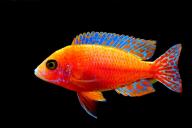Some pets seem to never be full - they can ask for more food whenever they see you, and sometimes it's pretty hard to resist.
Meanwhile, it's not a healthy thing to do, so if you want your cats to live longer, then you should avoid some feeding mistakes.
We've collected some of them for you, so you can keep them in mind while feeding yur fluffy friend.

Overfeeding
Giving your cat too much food can lead to obesity and health problems.
It's important to follow the recommended portion sizes on the cat food packaging or consult your vet for guidance.
Feeding Dogs' Food
Cats have different nutritional needs than dogs. Feeding your cat dog food won't provide them with the right nutrients they need to stay healthy.
Skipping Water
Cats need plenty of fresh water every day. Not having enough water can lead to urinary tract issues. Make sure your cat always has access to clean water.
Ignoring Age and Activity
Kittens, adult cats, and senior cats have different nutritional requirements. It's important to choose food that matches your cat's age and activity level.
Feeding Human Food
Some human foods can be toxic to cats, like chocolate, onions, and garlic. Avoid giving them these foods to keep your cat safe.
Inconsistent Feeding Schedule
Cats thrive on routine. Feeding them at different times every day can lead to digestive problems. Try to stick to a regular feeding schedule.
Feeding as a Reward
Using food as a reward for behavior can lead to overfeeding. Instead, use treats in moderation or other rewards like playtime.
Ignoring Food Allergies
Some cats have allergies to certain ingredients in their food.
If your cat has allergic reactions like skin problems or digestive issues, consult your vet to find a suitable diet.













